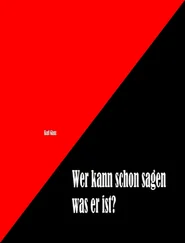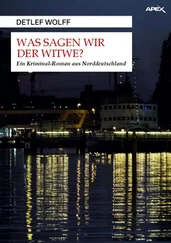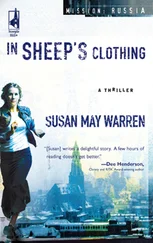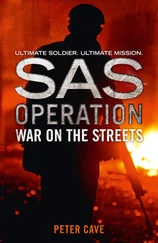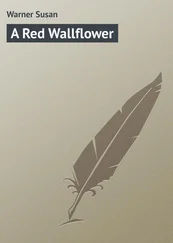“When do I leave?”
Another glance at the monitor. Another scroll. “Tomorrow night. From Dulles to London, then Sheremetyevo II. Someone from the embassy will meet you. Oh, and one more thing: You’ll be working with this Abakov fellow, the FSB officer who wrote the report. Be careful with him. A lot of their people are former KGB and they’re not to be trusted. Tell him nothing.”
“Aye, aye, sir.”
Radford’s face took on a steely look. “Admiral Ellsworth told me you’re one of his best skippers. That’s despite what I’ve seen in your file.”
Scott felt pressure at the base of his skull. “Well, General, as you said, the files don’t always tell the whole story.”
“Indeed. Just don’t prove me wrong.”
Scott spotted the strip mall on Route 7 outside Falls Church, Virginia. A quarter mile beyond it, Scott turned onto a narrow street and drove past 1960’s-era split levels and ranchers until he came to a house surrounded by a fence in need of repair. He pulled into the driveway and parked behind a silver Buick.
The Drummond property looked unkempt and weedy, but the house had been recently painted. He spotted a barbecue kettle and lawn chairs stacked against the garage, forgotten since summer. Who would take care of these things now? he wondered. Now that Frank was dead.
A radiator knocked but inside, the house felt chilly and damp, perhaps something to do with Frank’s absence that was palpable. The house felt familiar. The vanilla-colored woodwork and neutral carpeting. A glass-fronted cabinet filled with knickknacks from the Far East: porcelain, carved ivory Buddhas, lacquered rice bowls inlaid with mother-of-pearl. Drummond’s collection of Navy memorabilia on shelves in his study: a cracked coffee mug, a nickel-plated ashtray, cigarette lighters emblazoned with the logos of the subs he’d served in. Evidence of a life lived.
“I made us something to eat,” said Vivian Drummond. Her face looked drawn, eyes liquid.
They sat in the kitchen, which gave onto a deep yard bounded at one end by a copse of leafless maples. Vivian pushed up the sleeves of her mauve sweater and poured coffee. She set out freshly made chicken salad on beds of lettuce, and chilled white wine. Always the perfect hostess. Everything just right even in tragedy. Then she broke down.
Scott held her, rocking her like a child.
“I don’t understand it,” she said. “I just saw him in St. Petersburg. We had a wonderful visit. Romance, dinner, the theater. He was looking forward to wrapping up his work and coming home. It’s beyond belief. I can’t comprehend how such a thing could happen. All those years in the boats, the dangerous missions that scared the hell out of him and me—not a scratch, and now this. A robbery in Murmansk.”
Scott knew that the story concocted by the SRO, of a robbery gone bad, would not ease Vivian’s pain. And there was nothing he could say that wouldn’t make him feel less guilty for betraying her.
“Vivian, did Frank tell you what he was doing in Murmansk?”
Vivian dabbed her eyes, tried to limit the damage to her makeup. “I look a mess. No. He never talked about his work. Never. And a good Navy wife doesn’t ask.”
They tried to eat their meal that suddenly had lost its appeal. Instead Vivian drank a glass of wine. She got up, sat down, got up again. “I don’t think I can stay here, Jake. Not now. Too many memories. I’ll sell and head south. Or maybe California.”
“Things may look different later. We can talk about it when I return.”
Vivian went to him. “Jake, I don’t know how to express my gratitude. It’s got to be terribly difficult for you, too, bringing him back.”
“I owe him. I owe him everything. He knew what they planned to do with me. He made them admit the truth. They knew we were lucky to get out alive, lucky to save the ship. Everyone involved in the mission knew the risks we ran—Ellsworth, the rest of them…” He caught himself. “Sorry, Viv. I didn’t mean to bring it up. Not now. It’s just that—”
“I understand. Frank would understand. Didn’t he always?” “Sure.”
Jake sensed Vivian’s resource of stoicism had been drained dry. Her shoulders sagged and her fine features were about to crumble. He kissed her on the cheek and stood back. “It shouldn’t take me more than a week. I’ll take care of everything.”
“Will they catch the person who murdered Frank?”
“I understand the Russian security service is working closely with the embassy. I’ll look into it.” It was one lie he could live with.
When it seemed Vivian didn’t want to talk about it anymore, Scott knew it was time to go. But she caught his arm and said, “There is one thing.”
Scott had started to shrug into his coat and stopped.
“When I saw Frank in St. Petersburg, he seemed distracted,” Vivian said. “Oh, we were having fun, but beneath the surface I could tell that something was working on him. I knew how he was, how he had that damnable ability to be two people at the same time. He knew how to hide behind a mask of absurd good cheer even while his guts were churning.”
“Did he say anything—anything at all—about what might have been bothering him?”
“No, the only thing he said was something I knew he meant as a joke about how my being in St. Petersburg had saved him from himself.” “What did he say?”
“That he had a blind date lined up in Murmansk.”
3
The Inner City, St. Petersburg
The girl’s long booted legs strode over cobblestones. One false step on stiletto heels would end badly for her. Demonstrating phenomenal poise, she negotiated the narrow street without a mishap. The street paralleled the Fontanka River, which was south of the Neva. It ended in a pleasant little park complete with benches and a fountain that served as a hub from which, like spokes in a wheel, three equally narrow streets branched off to other parts of the city. A few pedestrians lugging groceries in net bags or walking their dogs crisscrossed the square lost in their own reveries.
Alikhan Zakayev sat on a bench near the fountain, which had been turned off at the onset of cold weather. Bundled up in his cashmere topcoat, he looked like a successful businessman who had sought a haven from the bustle of the city. On the bench next to him was a soft black leather zipper portfolio like those favored by Westerners. Instead of paperwork and a cell phone, the bag held a Heckler & Koch 9mm P7 pistol and a Czechoslovakian fragmentation grenade.
Zakayev admired the girl’s performance as he watched her clip-clop over the stones, sable coat and all, long black hair parted down the middle spilling over her shoulders like wings.
He had found her when she was fourteen, living on the streets in Grozny and suffering from starvation and dysentery. She had been raped and sodomized by Russian soldiers and left for dead. Her family had simply disappeared. One night the Spetsnaz showed up at her house and took them away. She had hid in the barn, and after her family had been forced at gunpoint aboard a truck, she watched Russian boys shoot the livestock and loot what little food was left before tossing phosphorus grenades into the house and barn. She escaped with only the clothes she had on and her parents’ wedding album wrapped in oilcloth.
The girl had bound her life to Zakayev’s, even considered herself his “wife,” which he didn’t discourage. But Zakayev’s devotion to his cause didn’t allow attachments. Enemies could use them to destroy you. A woman made you vulnerable. Love made you weak, and a man devoted to the cause had to be strong. He had early on learned to purge himself of sentiment. To Zakayev the girl was simply a beautiful object that gave him pleasure. But there were moments when he saw what might have been if the world he knew had not been destroyed.
Читать дальше


